‘Atishi will be arrested’: Arvind Kejriwal makes big claim ahead of Delhi Assembly polls

Kejriwal accused the BJP of conspiring against the Delhi government, alleging that they’ve been trying to inconvenience residents for the past decade.
PM Modi praises ex-PM Atal Bihari Vajpayee’s political brilliance in emotional tribute on 100th birth anniversary

In a long article published on Narendra Modi website, he expressed the nation’s gratitude towards the former prime minister whose leadership led the country forward. PM Modi mentioned Vajpayee’s stable and effective governance that transformed the lives of common citizens.
Atul Subhash-Nikita Singhania case: Bengaluru techie’s brother Vikas Modi demands nephew’s custody
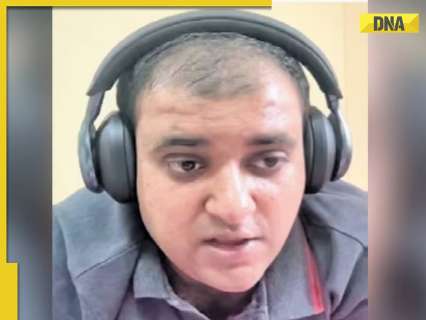
He suspects that the child might be in harm’s way. He fears the worst and demands that the child be placed in his custody for safety and care.
Shillong Teer Results TODAY December 25, 2024 Live Updates: Check lucky winning numbers
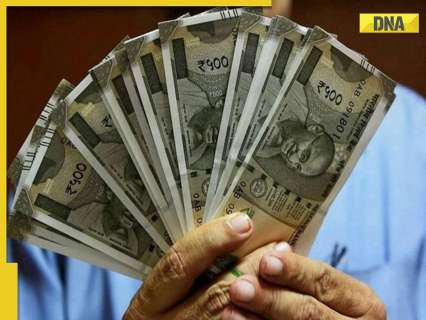
Shillong Teer is played thrice daily: Morning, Afternoon and Night. The main contest is played during the day, with results announced an hour apart, at around 3:45 pm and 4:45 pm, respectively.
It’s official: Biden signs new law, designates bald eagle as ‘national bird’

The White House announced on Christmas Eve President Joe Biden signed a bill officially designating the bald eagle as the national bird. The bill, signed Monday after being passed unanimously by Congress, amends Title 36 of the United States Code, officially appointing the predator one of the country’s national symbols. Congress passed the bill unanimously. SENATE PASSES BILL TO STOP SHUTDOWN, SENDING IT TO PRESIDENT BIDEN’S DESK The bald eagle, which has been featured on the Great Seal of the United States since 1782 and has its own holiday and protection act, was never technically assigned the title of “national bird.” BIDEN ADMIN OFFICIALS NOTICED STAMINA ISSUES IN PRESIDENT’S FIRST FEW MONTHS IN OFFICE: REPORT It was, however, designated as the national emblem by the U.S. Congress in 1782, according to USA.gov. In addition to its appearance on the Great Seal, it is featured on official documents, the presidential flag, military insignia, and currency. A document previously published by the U.S. Department of Veterans Affairs to VA.gov improperly noted the bird as the national bird. “Thank you to Senators Klobuchar, Lummis, Mullin and Smith, and Representatives Finstad, Craig and Emmer for their leadership,” the White House wrote in a statement Tuesday announcing the signing of the bill.
Armed men open fire on journalists during reopening of Haiti hospital

Haitian authorities have struggled to address rise of powerful armed gangs, and accountability for violence is rare. Armed men have opened fire on a group of journalists in Haiti who had gathered to cover the reopening of the capital’s largest public hospital. While authorities have not offered details on casualties from the attack on Tuesday, the Reuters news agency reported that two journalists and a police officer were killed, citing a journalist who witnessed the attack and asked not to be named. “We express our sympathy to all the victims’ families, in particular, to the PNH [Haiti’s national police] and all the journalists’ associations,” Haiti’s transitional presidential council stated in a social media post. “We guarantee them that this act will not remain without consequences.” The attack is the latest to roil Haiti, where continued political and economic instability have helped fuel the rise of violent armed gangs that have grown more powerful since the assassination of former President Jovenel Moise in 2021. Law enforcement authorities on the island nation have struggled to counter the criminal groups, which have exerted control over an estimated 80 percent of the capital, Port-Au-Prince, where widespread violence has hammered civilians and disrupted vital services. Advertisement One institution forced to close in March was the General Hospital, the country’s largest public hospital. Journalists had gathered on Tuesday morning to cover the facility’s reopening when gunmen opened fire at about 11am (16:00 GMT), Reuters reported. Government officials had convened to reopen the hospital in downtown Port-Au-Prince in July, but that event was also targeted by gunfire, which forced former Prime Minister Garry Conille to flee the scene. An unverified video posted online on Tuesday appears to show three journalists lying wounded on the floor of the building. A recent report by the United Nations stated that only 24 percent of health facilities in the Port-Au-Prince area are operational. Johnson “Izo” Andre, a powerful gang leader in a coalition known as Viv Ansanm, posted a video to social media on Tuesday taking credit for the attack. Adblock test (Why?)
Taiwan struggles to reconcile climate ambitions and chip manufacturing
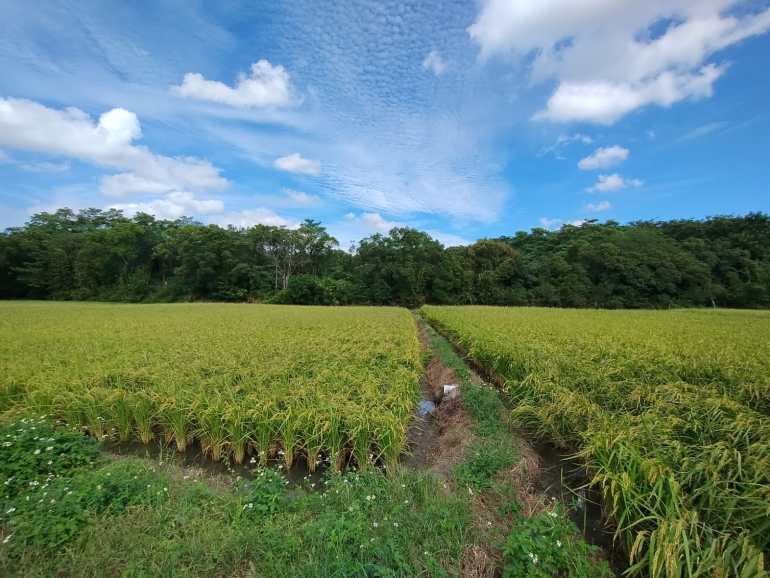
Hsinchu, Taiwan – A crane bird flies across a silent rice paddy, the water slowly trickling in the background. It is a tranquil and stereotypical image of an East-Asian countryside. Little seems to suggest I am just a few kilometres removed from one of the hearts of the global economy. This is Hsinchu, a small city close to Taipei in Taiwan. It is what you could literally call the Silicon Valley of the world. Just a few kilometres from the tranquil rice paddies, gargantuan buildings rise from the ground, air conditioning humming permanently over the bustle of traffic. These are the factories that build the silicon chips or semiconductors that make our smartphones, computers and even artificial intelligence (AI) systems such as ChatGPT work. Yet these two worlds, tranquil nature and high-tech manufacturing, are increasingly clashing on the island. Taiwan is the world leader in the production of computer chips. Taiwan Semiconductor Manufacturing Company Limited (TSMC) is the largest chip manufacturer in Taiwan. By the third quarter of 2024, it had conquered 64 percent of the global semiconductor market, according to research firm Counterpoint. Advertisement The second-biggest player, South Korea’s Samsung Foundry, represented only a distant 12 percent. Chip manufacturing makes up an outsized part of Taiwan’s economy and contributes 25 percent of the gross domestic product (GDP) of the island. In 2020, the market value of TSMC was equal to the size of half of Taiwan’s economy, as per a study at the time. Few countries seem to be able to outdo the Taiwanese at manufacturing chips. However, this semiconductor success is also raising sustainability issues. Chip manufacturing consumes large amounts of water and energy, and emits emissions through chemicals. TSMC alone consumes about 8 percent of the island’s electricity, according to a recent report by S&P Global Ratings. “After the petrochemical industry, the electronics industry is the biggest emitter of Taiwan,” Chia-Wei Chao, the research director at the nonprofit Taiwan Climate Action Network and adjunct assistant professor at the National Taiwan University, told Al Jazeera. “Semiconductors are also a rapidly growing industry, which is worrying, to say the least.” This is even bringing them into conflict with the farmers that Taiwan’s chip factories are located near. In 2021, during a drought, the Taiwanese government halted irrigation of farms, so the huge chip factories could use the saved water. Today, anxiety is growing over how solar farms, which are needed to power chip manufacturing, might take up farmland. “There seems to be a lack of systemic analysis on the environmental effects on semiconductor production,” Josh Lepawsky, a professor of geography at Memorial University of Newfoundland in Canada, told Al Jazeera. Advertisement “That’s a grave mistake.” In Taiwan’s Hsinchu countryside, tranquil nature and high-tech manufacturing are an example of the increasing clash on the island [Tom Cassauwers/Al Jazeera] ‘Crazy’ AI While the water use of chip factories has garnered much international attention in the past few years, on the island itself, it is considered old news. Semiconductor manufacturers are already recycling most of the water they use, and the government has invested in more water infrastructure since the drought of the past years. The Taiwanese today are worrying about the industry’s energy use. Artificial intelligence achieved large breakthroughs in the past years, driven by the large language models of US companies like OpenAI and tools such as ChatGPT. This revolution was powered by chips that were mostly manufactured in Taiwan. The AI hype, in turn, is causing Taiwan’s huge chip factories to go into overdrive. “The AI market is becoming more crazy than ever,” Lena Chang, a campaigner at Greenpeace East Asia, told Al Jazeera. “Because of it, the energy use of the semiconductor industry is becoming a major problem for Taiwan, because of increased emissions and even possible shortages.” In all the craziness, the climate might have been forgotten. “The main goal is now to develop AI and the related supply chains,” Chang said. “Energy is not a big concern. The government should be more active in developing sustainable energy.” Slow renewables One key issue here is the Taiwanese energy market. Taiwan is currently phasing out its nuclear reactors. Construction of solar and wind energy, however, has been lagging. Advertisement “Taiwan still heavily relies on fossil fuels,” Chang said. “More than 80 percent of our energy supply is from gas and coal.” Just 11 percent of Taiwan’s energy supply between September 2023 and August 2024 came from wind, solar and hydropower, according to the Energy Administration. A declining nuclear share contributed another 5.6 percent. The Taiwanese government in 2016 set a target of 20 percent renewables by 2025, which it will almost certainly miss. Offshore wind, for example, is lagging behind government targets. In 2018, Taiwan awarded 5.7 gigawatts (GW) of offshore wind to be installed by 2025. By 2024, the government had downgraded its targets, and hoped between 2.56GW and 3.04GW would be ready that year. “Offshore wind went quite well until 2022. But then, for the following auction rounds, Taiwan tried to get both cheap energy and high localisation of the supply chain,” Raoul Kubitschek, the managing director of the renewable energy consultant NIRAS Taiwan, told Al Jazeera. Wind energy is particularly running into Taiwan’s localisation rules. Taiwan’s government is demanding that very high percentages of its wind turbines and other components be produced locally. This local production, however, is not picking up fast enough. “You cannot build a new supply chain this fast,” Kubitschek said. “Taiwan only constructed its first commercial-sized offshore wind farm in 2017. It takes time to create a domestic wind energy industry.” Solar energy is also running into barriers. Rooftop solar has been largely saturated on the island. Larger-scale solar farms, in turn, are controversial because of land disputes. Groups like farmers are afraid they will encroach on farmland, leading to protests and lawsuits. Advertisement Chia-wei Chao is hoping to turn this around. He leads some pilot projects where farmers themselves place solar panels on their land. “We shouldn’t force farmers to
US government agency targeting foreign disinformation shuts down
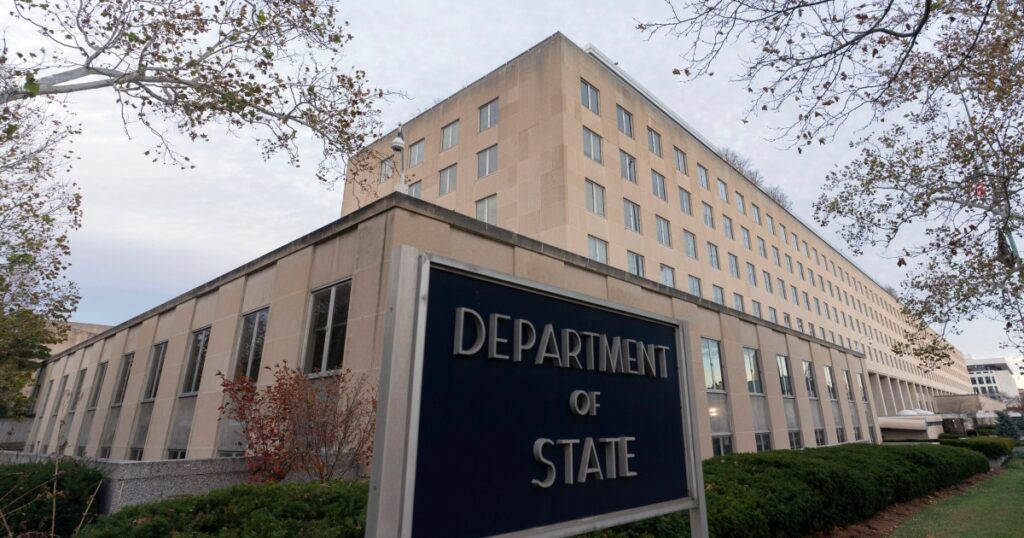
State Department unit established in 2016 closes after US Congress fails to extend funding amid Republican accusations. A leading United States government agency that tracks foreign disinformation has terminated its operations, the State Department has said, after Congress failed to extend its funding following years of Republican criticism. The Global Engagement Center (GEC), a State Department unit established in 2016, shuttered on Monday at a time when officials and experts tracking propaganda have been warning of the risk of disinformation campaigns from US adversaries such as Russia and China. “The State Department has consulted with Congress regarding next steps,” it said in a statement when asked what would happen to the GEC’s staff and its ongoing projects following the shutdown. The GEC had an annual budget of $61m and a staff of about 120. Its closing leaves the State Department without a dedicated office for tracking and countering disinformation from US rivals for the first time in eight years. A measure to extend funding for the centre was stripped out of the final version of the bipartisan federal spending bill that passed through the US Congress last week. Advertisement The GEC has long faced scrutiny from Republican lawmakers, who accused it of censoring and surveilling Americans. It also came under fire from Elon Musk, who accused the GEC in 2023 of being the “worst offender in US government censorship [and] media manipulation” and called the agency a “threat to our democracy.” The GEC’s leaders have pushed back on those views, calling their work crucial to combating foreign propaganda campaigns. Musk had loudly objected to the original budget bill that would have kept GEC funding, though without singling out the centre. The billionaire is an adviser to President-elect Donald Trump and has been tapped to run the new so-called Department of Government Efficiency (DOGE), tasked with reducing government spending, in Trump’s upcoming administration. In June, James Rubin, special envoy and coordinator for the GEC, announced the launch of a multinational group based in Warsaw to counter Russian disinformation on the war in neighbouring Ukraine. The State Department said the initiative, known as the Ukraine Communications Group, would bring together partner governments to coordinate messaging, promote accurate reporting of the war and expose Kremlin information manipulation. In a report last year, the GEC warned that China was spending billions of dollars globally to spread disinformation and threatening to cause a “sharp contraction” in freedom of speech around the world. Adblock test (Why?)
Merry Christmas 2024: Know significance, history, tradition, why it is celebrated on December 25

Today, Christmas is a worldwide celebration that does not recognise any religious barrier. From the bright lights and Christmas markets to charity work and family gatherings, the charms of Christmas continue to inspire joy and goodwill in the hearts of people.
Trump announces model and philanthropist Somers Farkas, auto giant John Arrigo for ambassadorships
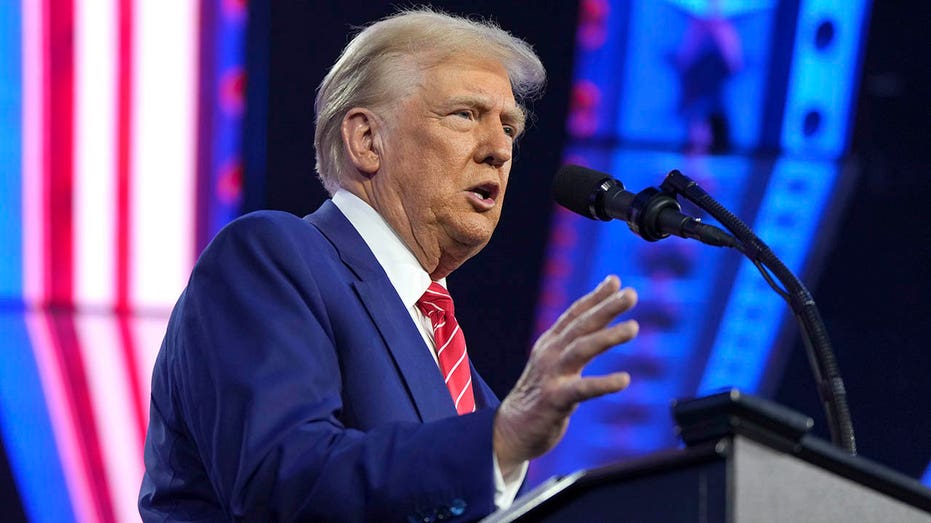
President-elect Trump has nominated Somers Farkas and John Arrigo for ambassadorships. If confirmed, Arrigo, Arrigo, who is the vice president of the Arrigo Auto Group in West Palm Beach, Florida, would serve as ambassador to Portugal. VANCE TO LIKELY BE 2028 GOP PRESIDENTIAL FRONT-RUNNER, BUT RNC CHAIR ALSO LIKES PARTY’S ‘BENCH’ “John is a highly successful entrepreneur in the automotive industry, and a champion golfer. For over thirty years, he has been an incredible leader in business in West Palm Beach, and is respected by all,” Trump wrote on his Truth Social platform. “I have known John for a long time. He will do an incredible job for our Country, and always put America FIRST.” Arrigo has been a longtime associate of Trump’s, a Business Insider report said in 2021. HOUSE GOP CAMPAIGN COMMITTEE CHAIR MAKES 2026 PREDICTION Farkas, a model and philanthropist, would serve America’s interests in the island nation of Malta. Farkas previously served on Trump’s Commission on White House Fellowships. In his announcement, Trump said she “has raised Millions of Dollars for charity, including for the American Society for the Prevention of Cruelty to Animals, the Alzheimer’s Associate, Lighthouse Guild, the New York Women’s Foundation and, as a Trustee of the New York City Police Foundation where she has always BACKED THE BLUE.”

